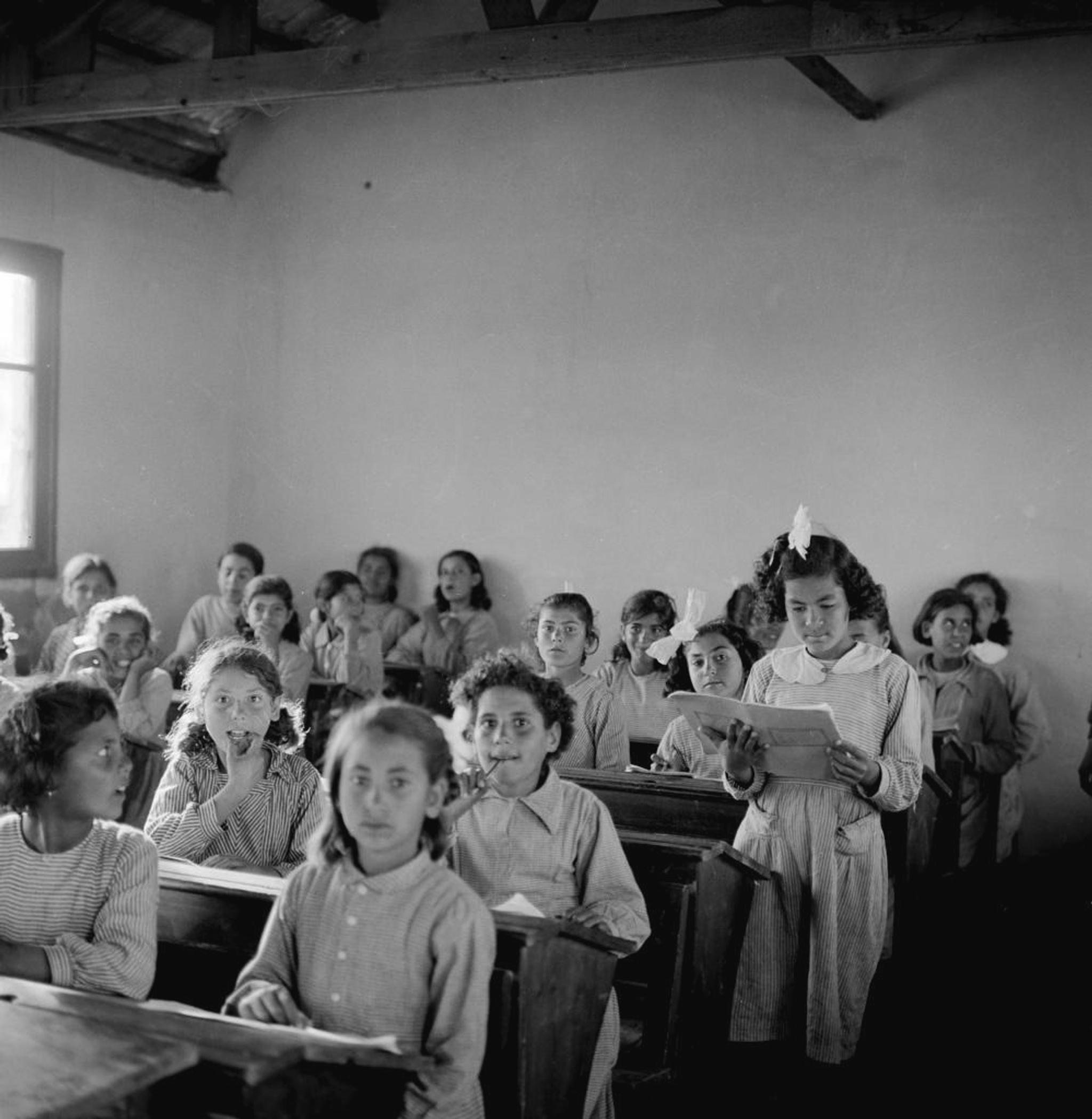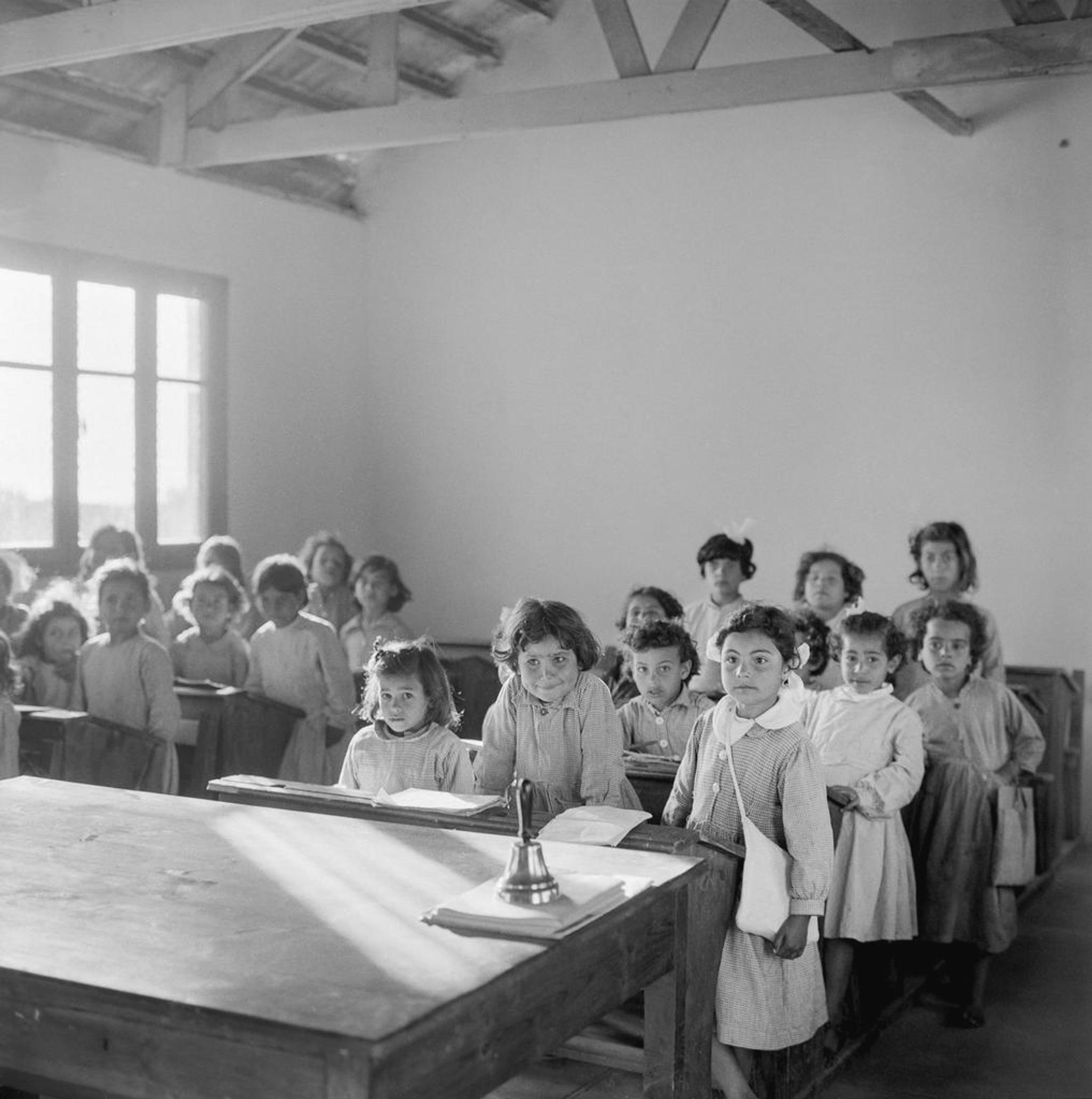
For the one in the back turning to smile at her mates
When the sun rose on a simmering mid-May morning in 1948, nearly half a million children woke to a vanquished world. Air-raid sirens shook the walls, and minarets were bellowing for their fellow villagers to seek shelter – the invaders had arrived. With their eyes darting in search of their mothers in a crowded panic to outrun massacre, they were no longer children of an anticipated republic, of a nation promised self-determination. Subsisting on bony sardines and chalky powdered milk, they were now wards of an international order, the excesses of a world being remolded in the aftermaths of wars elsewhere.
Nearly ten years on, schools were not under tents or in the open air. There was a timbered roof, but also desks, and windows that let in warming light and sometimes a merciful soft breeze. Hand-me-down uniforms were retailored by camp seamstresses. Everyone was vaccinated, tuberculosis shots marring upper arms. Their hair was tied back in neat bows, and their skin glowing from showers in potable water. The children weren’t repeating after the most literate person in the camp, or an older child whose cheeks had not yet shed their baby fat. Their teacher had gone through training and experimented with pedagogical theories in her kingdom, her classroom.
The old promise was replaced with a new one. Sit, study, and you will make something of yourself, of your family, of your community, of your people. It was a potent contract: literacy for a better life. And so, en masse, Palestinian young people searched for chalk for their slates, lit their kerosene lamps, and bent over their schoolbooks.
Between the arithmetic and the astronomy lessons, however, was a strain of poison: a curriculum designed to turn them away from a sense of national belonging. Most rehearsed the lines anyway: paying fealties to a new King, singing the praises of another nation, expressing gratitude for their future salvation at the hands of domineering autocrats. There was, as yet, no cohesive antidote other than a shared sensibility – between student, teacher, and parent – that, despite those venomous lines, their accrued education would give them power to withstand this schooling’s coercions and eviscerations.
Some graduated; they made it. They left their camps in search of futures in the Gulf, in the Americas, across Europe. They got by and earned a living, sending some of that living back to their mothers and fathers, brothers, and cousins. Some leveraged their newly gained social power to craft a more independent life. Others didn’t have it so easy. The traumas of war caught up to them. They wandered, spending their lives rest- less, uneasy, in insurmountable pain. Sometimes, lives ended at the bottom of the sea.
Still others found purpose building movements that could reimagine what was possible for themselves and for their friends. They mapped their own paths back home. They assembled economies of support, mustered communes of love and repair, and bound themselves to solidarities near and far.
Who will tell these young people the cruelties that await their children, grandchildren, and great-grandchildren? That every promise will be unkept? Dreams will turn to nightmares of invasion and siege. Schools will be shorn of roofs, and their descendants pulled from rubble.
A student will adorn her classmate’s desk with wildflowers in remembrance.
It is an undeserved miracle that they look at us with joyful mischief and wonder.
Primary school girl in a classroom as part of UNRWA's educational program. Gaza Strip, April-May 1957.
